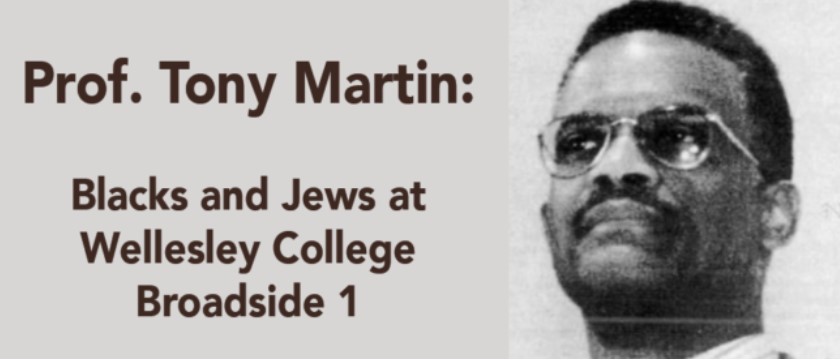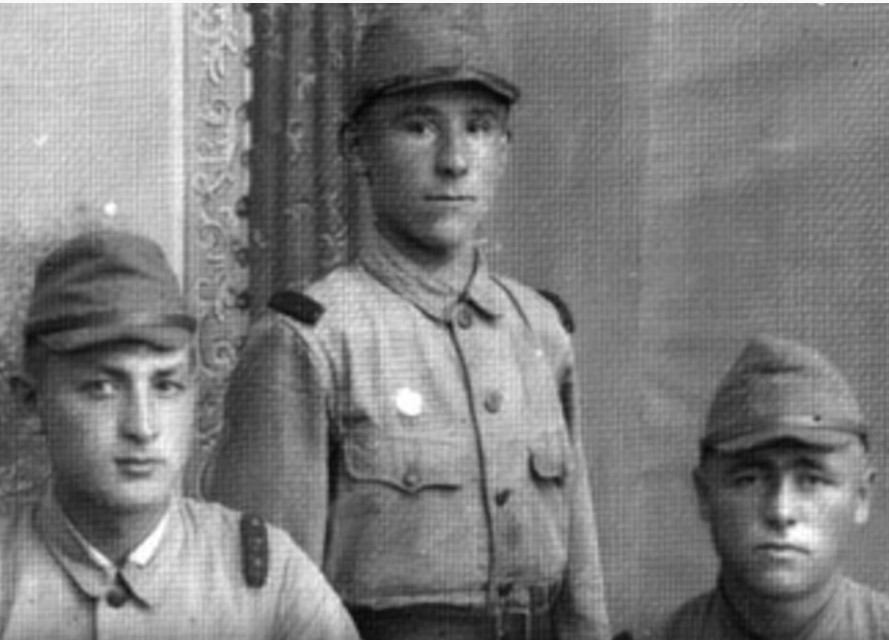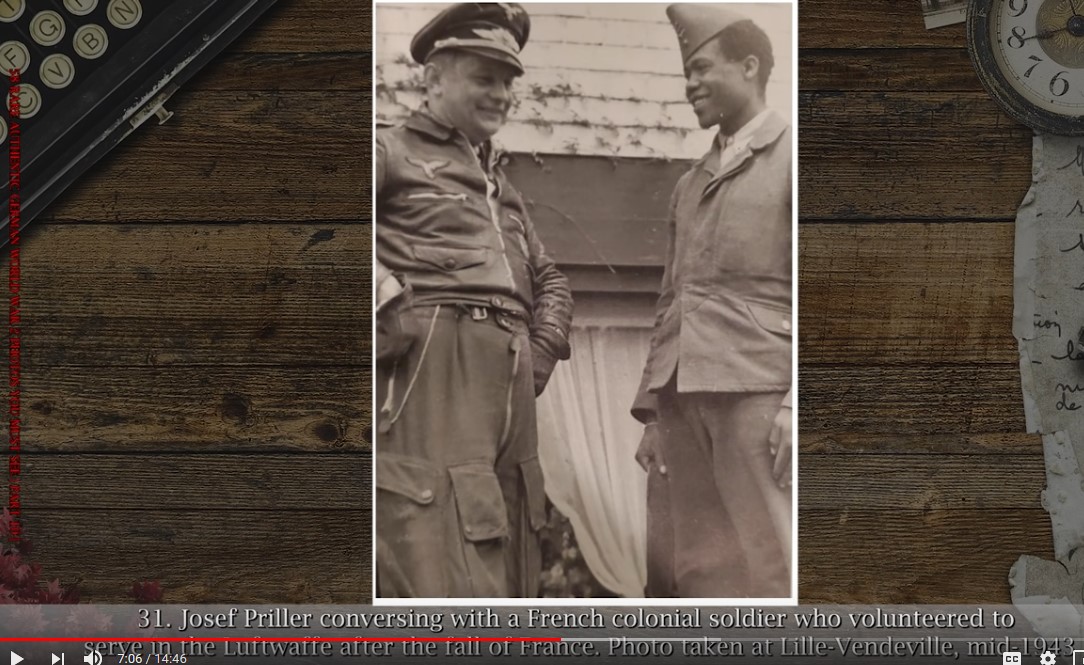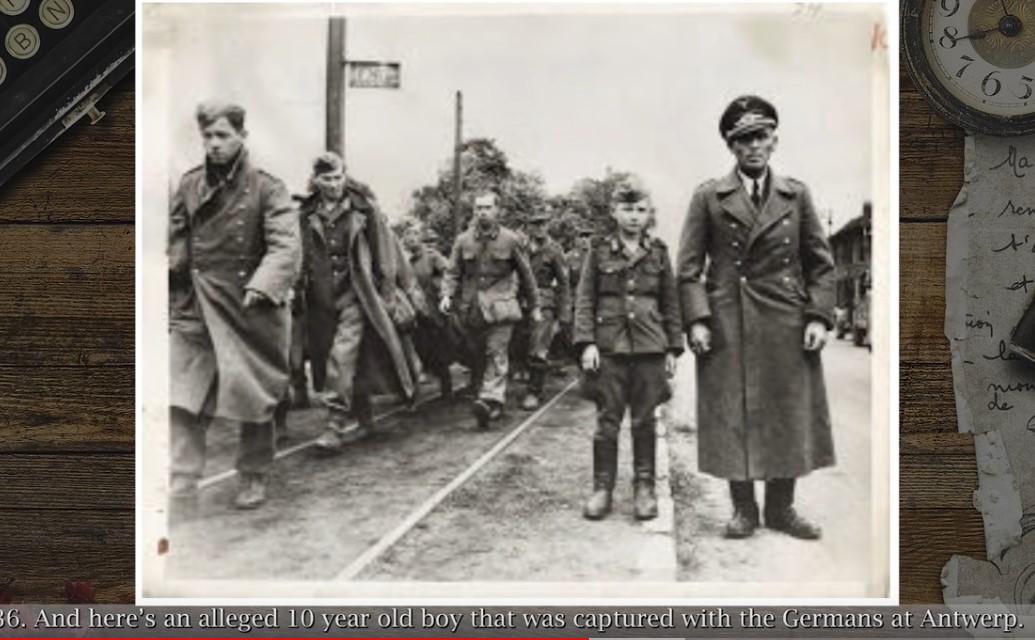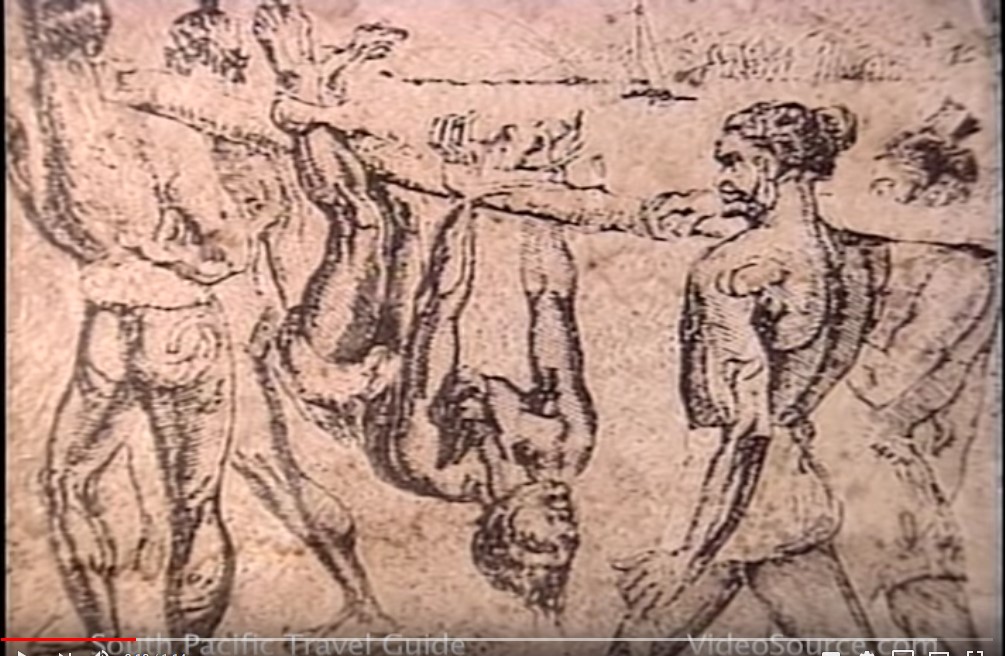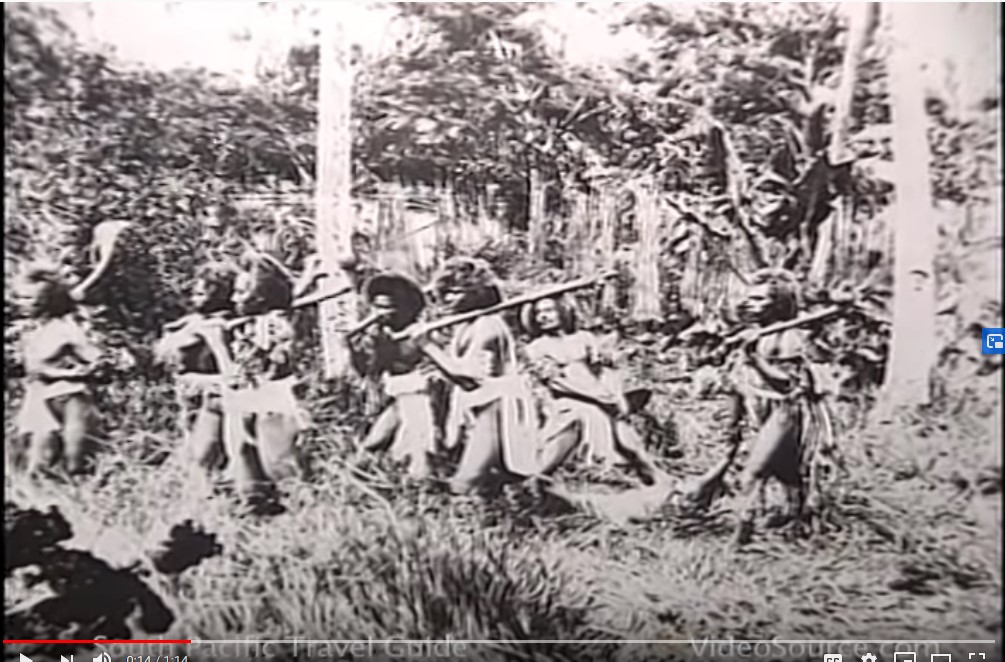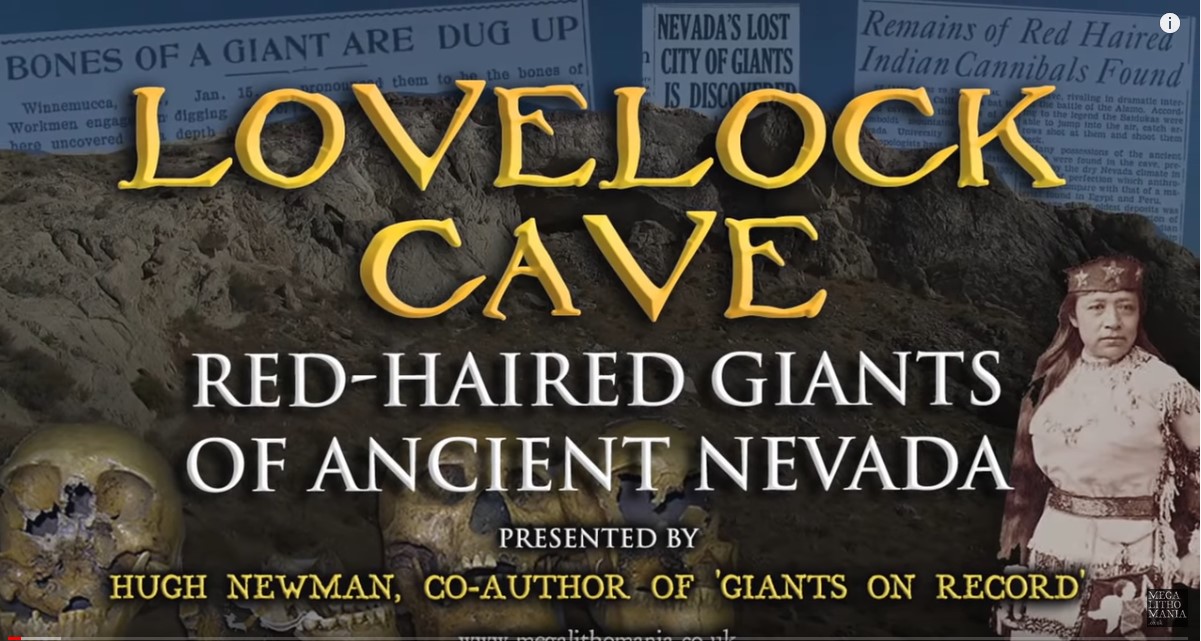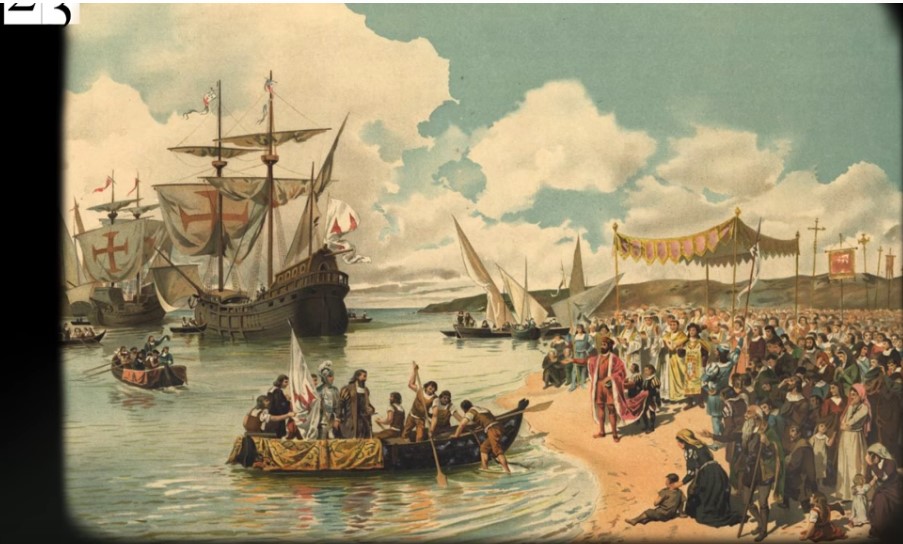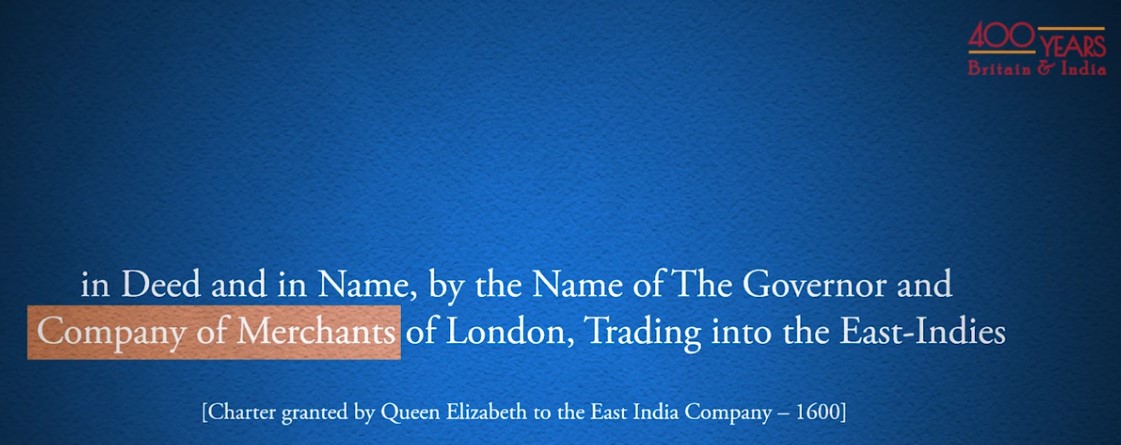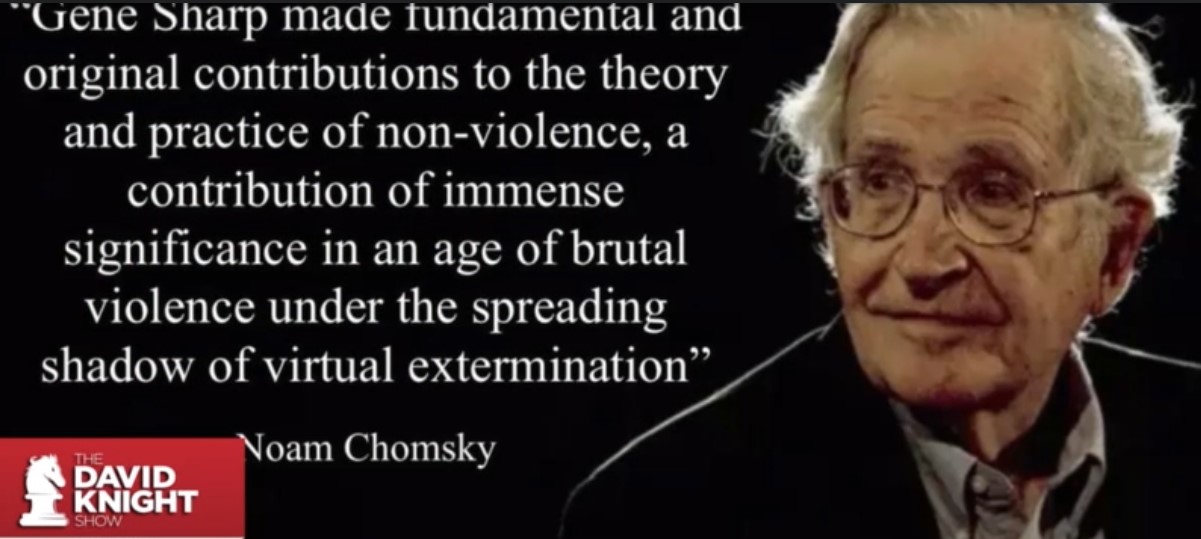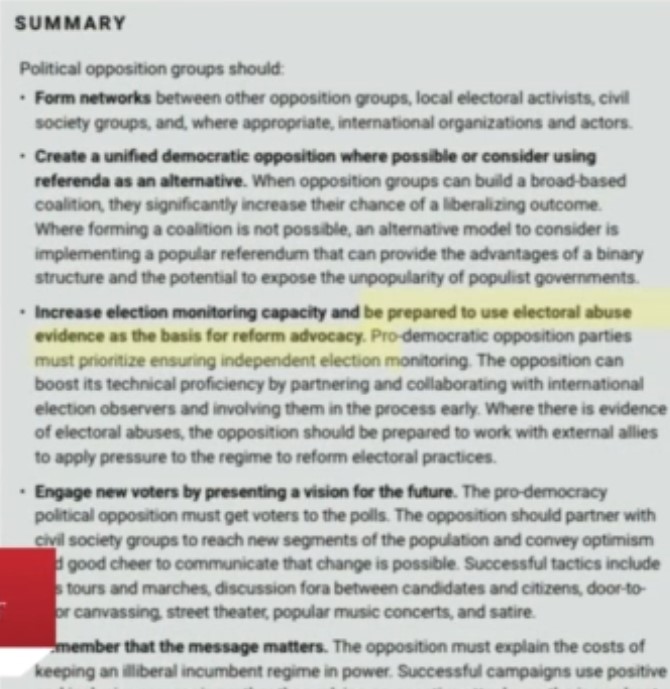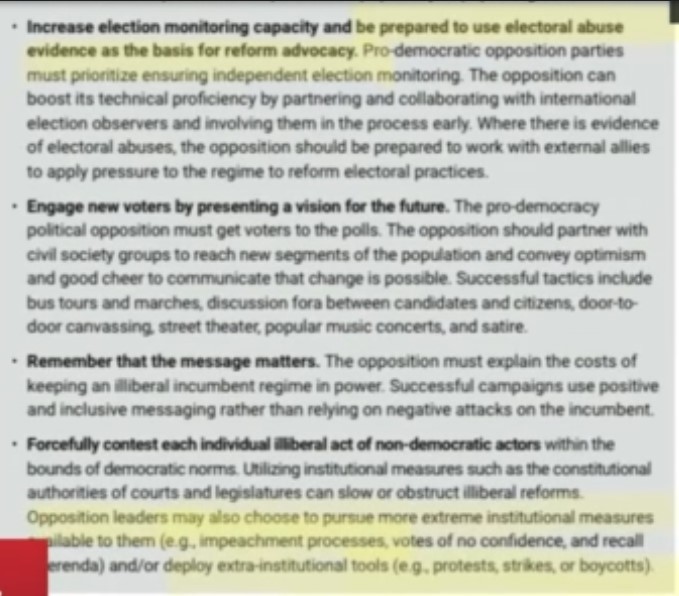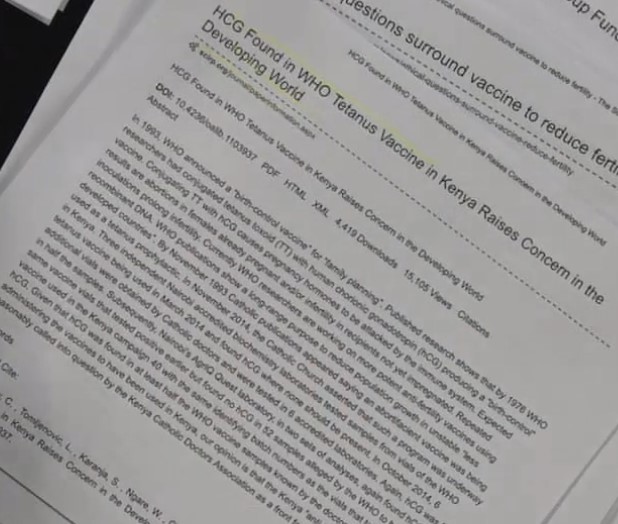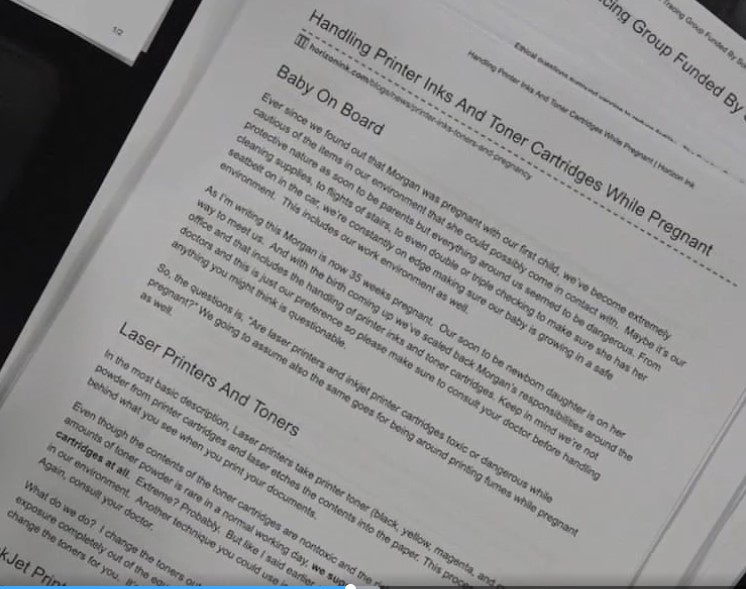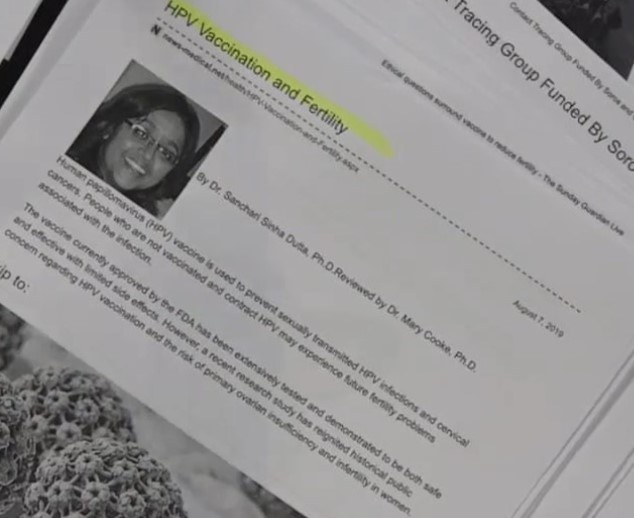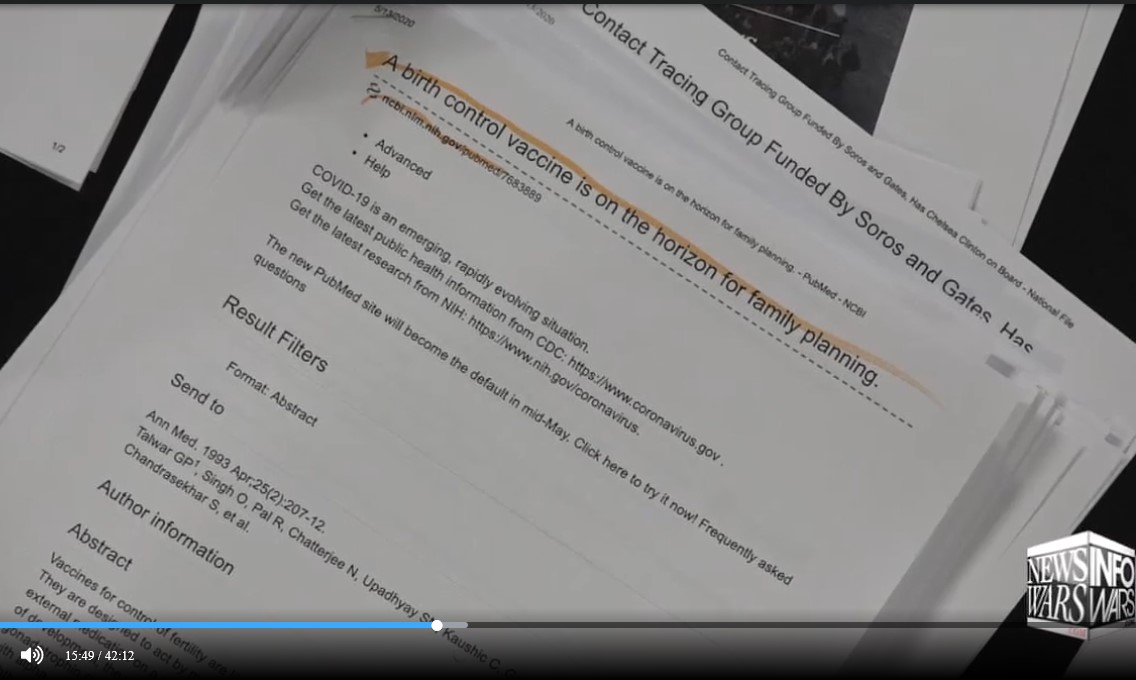Prof. Tony Martin March 1, 1993
After having been villified for several weeks in the Wellesley News and after having been denied the opportunity to defend myself therein, I now resort to publication of this broadside series, in an effort to let the record reflect more than my detractors’ point of view. Issue No. 1 consists solely of my defense of myself, which the Wellesley News refused to print. Subsequent issues will deal with other aspects of the controversy surrounding my teaching of The Secret Relationship Between Blacks and Jews.
The Secret Relationship Between Blacks and Jews (Historical Research Department, Nation of Islam, 1991) is an excellent study of Jewish involvement in the Transatlantic slave trade and African slavery. It demonstrates that Jews were very much in the mainstream of European society as far as the trade in African human beings was concerned. While numerous other studies have dealt with the role played by Christians, by African collaborators and by Muslims (especially in relation to the slave trade to Asia), there has hitherto been no effort to synthesize available information on Jewish involvement. This is perhaps surprising, since Jewish domination of the other major Transatlantic slave trade has received adequate Jewish coverage — I refer here to “white slavery,” the international prostitution of (mainly) Jewish women, by Jewish entrepreneurs in the nineteenth and early twentieth centuries. (See Edward J. Bristow, Prostitution and Prejudice).
The Secret Relationship Between Blacks and Jews, using primarily Jewish sources, shows that Jews were fully involved in every aspect of the African slave trade. They were heavily invested in the Dutch West India Company, a multinational corporation (to use modern terminology) specializing in all aspects of the slave trade. They were major slave importers and dealers in places such as Curaçao, Brazil and Barbados. In their Surinamese town of Jew Savannah and elsewhere, they owned substantial numbers of slaves and were zealous participants in European wars waged against slave runaways and maroons. Like their Christian counterparts, they engaged in the full gamut of atrocities visited upon the unfortunate Africans, from whipping to dismembering to rape and murder. In an incident not related in The Secret Relationship, J.G. Stedman, a British veteran of Dutch wars against African maroons in Suriname, detailed the story of the African maroon leader Jolly Coeur, who as a young boy was a horrified witness to the rape of his mother by a Jewish slaveowner, one Schults. As an adult Jolly Coeur avenged his mother’s rape by flaying Schults, using his skin to keep his powder dry and employing the slaveowner’s head to play bowls on the beach. (J.G. Stedman, Narrative of a Five Year’s Expedition Against the Revolted Negroes of Surinam).
For the United States, The Secret Relationship cites U.S. census figures to show that Jews, on a per capita basis, often owned more slaves than non-Jews. They owned slave ships that plied the Atlantic and actually owned all the rum distilleries in Newport, R.I. (Rum, distilled from slave-produced molasses, was an important item in the slave trade.)
Jewish abolitionists were few and far between, and the exceptional Jews who opposed slavery were sometimes subjected to the opprobrium of their co-religionists. There is no Jewish counterpart in the United States to the organized Christian abolitionism of the Quakers, Methodists, Baptists and others. Jewish writer Jonathan Kaufman in Broken Alliance admits that “The Jews who first came to America in the seventeenth, eighteenth, and early nineteenth centuries were heirs to a conservative political tradition that tended to embrace the status quo….” Slavery, of course, was a major part of that status quo.
The Larger Context
The full force of Jewish fury has been unleashed against The Secret Relationship. The book has been denounced as “anti-Semitic” and on a par with the greatest racist works of all time. At Wellesley College, the Wellesley News has called on students to come forward and testify against it, so that it may be forcibly removed from my syllabus. Wellesley’s Academic Council rewarded with polite and prolonged applause the chair of Africana Studies, when, in heart wrenching emotional terms, he, too, denounced the book as “anti-Semitic.”
For an explanation of the frenetic response to this quite normal scholarly work, one must look at the history of African American/ Jewish relations in the twentieth century. For much of this century, Jews have been a prominent element in the liberal wing of white North America. According to Kaufman, this switch to seeming liberalism (very different from the slavery and earlier post-slavery eras), was facilitated by the development of the Reform Movement in U.S. Judaism in the late nineteenth century, by Jewish involvement in communism and socialism, and by the pursuit of an enlightened Jewish self-interest. In the words of Kaufman, the Jewish “struggle for equality and fair treatment was linked to the struggles of blacks for greater opportunity. It was not a struggle of equals; Jews did not consider their plight equal to that of blacks. But they recognized in the black struggle for rights elements that could benefit them and conditions with which they could sympathize.”
Accordingly, several rich and powerful Jews, among them prominent leaders of the U.S. Zionist movement, co-founded, led and financed the National Association for the Advancement of Colored People. (The NAACP, founded in 1909, got its first African-American chairperson only in 1975, after the death of chairman Kivie Kaplan, a Boston Jew. The NAACP’s highest honor, the Spingarn Medal, is named after one of its early Jewish leaders, Joel Spingarn.) Jewish influence in African American affairs climaxed in the Civil Rights era of the 1950’s and 1960’s when, according to Kaufman, three-quarters of the funding raised by the three major Civil Rights organizations (the Student Nonviolent Coordinating Committee, the Congress of Racial Equality and Martin Luther King’s Southern Christian Leadership Conference), came from Jewish sources. Jewish influence in the movement was personified by Stanley Levison, one of King’s two closest advisors (the other being Andrew Young). Levison drafted King’s speeches, handled his finances and served as his chief strategist.
This coalition of unequals came under severe stress after the mid-1960’s, when Black Power came to town, emphasizing self-reliance and African American control over their own organizations.
Academia
Jewish influence in African American affairs was reflected also in the realm of scholarship. Jewish scholars came to occupy a powerful position within the area of African American Studies. Names such as Melville Herskovits, Herbert Aptheker, August Meier and a host of others came to be considered by many as the leading authorities on African American history and culture. (The fact that African Americans, unlike Jews, did not own any major publishing companies, doubtless contributed to this state of affairs).
With Black Power came the rise of Black Studies, a greater influx of African Americans into the academic community and a desire for greater control over scholarly interpretations of their own experience. The rise of Afrocentrism and the establishment of African American publishing houses are recent developments in that ongoing struggle.
Jewish Offensive
By the late 1960’s the momentum for African American struggle had definitely moved away from the traditional Civil Rights organizations (in which Jews exercised great influence) to the newer groups and individuals favoring a more self-reliant approach to African American struggle. This had serious consequences for Jewish participation in African American affairs. While the powerful NAACP Legal Defense Fund continued under its long-standing Jewish leader, Jack Greenberg, the expulsion of all whites from SNCC and CORE inevitably removed direct Jewish influence from these bodies.
These African American assertions of independence did not sit well with Jews who had grown accustomed to overlordship of the Civil Rights movement, not to mention great influence in the economic life of African American communities. While pockets of Jewish liberalism remained, the dominant Jewish posture was now characterized by the demise of benevolent paternalism and its replacement by an aggressive hostility to continuing African American progress. The new policy brought some impressive Jewish victories, as Jews leveraged off of their great influence within the United States polity, to thwart the rising ambitions of African American folk.
In 1968 Jews defeated the efforts of African Americans in Brooklyn, New York to control the education of their own children, in the Ocean Hill-Brownsville affair. In 1977 the major Jewish organizations intruded themselves as “friends of the court” into the Bakke case, to defeat affirmative action programs for African Americans, Hispanics, Asian Americans and Native Americans. Jews became the major opponents of Jesse Jackson in his two presidential bids. After Minister Louis Farrakhan defended himself against Jewish charges of being an African American Hitler, they raised a hue and cry of “anti-Semitism.” The major Jewish publication, Commentary, hid behind the first amendment to allow the bigot Arthur Jensen to spew forth his garbage on the supposed genetic inferiority of African Americans. This pseudo-scientific racism reached new heights in 1990 when Jewish City College (New York) professor Michael Levin became the new standard bearer for white supremacy. “On average,” he declared, “blacks are significantly less intelligent than whites” (New York Times, April 20, 1990). When Nelson Mandela visited New York shortly thereafter, some Jewish elements threatened to disrupt his appearances. Ted Koppel and other Jews on ABC’s Nightline program (staged at the very same City College), hinted broadly to Mandela that he had better succumb to Jewish pressure or risk losing U.S. support. Mandela had to explain to the Jews that “Your enemies” (in this case Yasir Arafat and the Palestine Liberation Organization) “are not my enemies.”
There were many more assaults on African American interests, but perhaps the most memorable was the offensive against Andrew Young. Young was one of the most sacred icons of the African American integrationist, traditionally pro-Jewish establishment. Yet Jewish pressure on President Jimmy Carter cost him his job as U.S. ambassador to the United Nations. His “anti-Semitic” indiscretion consisted of a meeting with a PLO representative. The result was a 1979 summit meeting of the African American political integrationist establishment. Everybody from Coretta Scott King to Jesse Jackson to the NAACP’s Benjamin Hooks was there. The Congressional Black Caucus, women’s organizations, fraternities and sororities and everyone else deplored the treatment of Andrew Young and issued a “Declaration of Independence” against external control of African American organizations.
The Secret Relationship and Wellesley College
The Jewish scholar Nathan Glazer sought to provide intellectual justification for this onslaught. In his Affirmative Discrimination (1975) he turned history upside down to argue that white ethnic groups (such as Jews) who had arrived “post-1880” (as if no Jews had arrived before 1880), “were not particularly involved in the enslavement of the Negro or the creation of the Jim Crow pattern in the South…or the near extermination of the American Indian…. There is little reason for them to feel that they should bear the burden of redressing a past in which they had no or little part….” B’nai Brith repeated these falsehoods in its brief for the Bakke case.
This falsification of history is now corrected by The Secret Relationship Between Blacks and Jews, which documents Jewish involvement, not only in African slavery but in the extermination of the Native Americans as well. The predominant Jewish response has been, all too predictably, to denounce the book and all who use it (myself included), as “anti-Semitic.” “Anti-Semitism,” once presumably the anguished cry of an oppressed people, has become, for the privileged and powerful U.S. Jewish leadership and their unthinking Negro stooges, a bludgeon to subdue dissent, stifle discussion, deprive African Americans of a living and perpetuate historical lies.
“Anti-Semitism” has also become a clever smoke screen for a burgeoning Jewish intolerance of truly Stalinist proportions. Last year my esteemed Wellesley College colleague Mary Lefkowitz, Andrew Mellon professor (the same one who did not know that Herodotus had referred to the doctrine of the immortality of the soul; the same one who recently insulted our Martin Luther King, Jr. memorial speaker, Dr. Yosef ben-Jochannon, in the college chapel), launched into a sudden and unprovoked attack on my “Africans in Antiquity” course. She became displeased at the suggestion that Africans had pioneered civilization and influenced Ancient Greece. She took the unprecedented step of intriguing with the dean of the college to rewrite the description of my course in the preliminary college catalog, without my knowledge or consent. She also attacked the course in the conservative Jewish-owned New Republic and in the Chronicle of Higher Education, where she described Afrocentrism as an irrational development. (Neither publication allowed me to respond). Several years earlier the resident Jewish Studies expert in Wellesley’s Religion department had written the Curriculum Committee in an unsuccessful attempt to prevent me from teaching this course at all. On February 21, 1993, two days after my return from a lecture engagement at Gettysburg College, Lefkowitz despatched a memo to contacts there warning them against Afrocentric scholars in general and Dr. ben-Jochannon in particular. “It seems to me,” she wrote, “that the promulgation on college campuses of this type of ‘information’ is a very great danger to our subject, since it is often delivered to students in contexts where no competent historian of the ancient world is welcome or able to be present.” And now I learn from the Wellesley News that Hillel students not registered in my African American survey course sat in, unknown to me, in order to monitor my references to The Secret Relationship Between Blacks and Jews.
This type of mindless intolerance is clearly not acceptable. Despite their recent victories, Jews have nothing to gain in the long run from picking fights with an aroused and conscious African American population. They must realize that slavery has ended. It ended some time ago. And even though some handkerchief heads will always be among us, the cozy paternalism of the Civil Rights era has run its course. It is not too late to reverse the current trends, but any rapprochement between African Americans and Jews will have to be predicated on mutual respect. And mutual respect will entail reparations from both Jew and Gentile for four centuries of unrequited toil. Nathan Glazer argued that “Compensation for the past is a dangerous principle,” but it is unlikely that he found fault with the billions in reparations paid by Germany to the Jewish state of Israel. The day of Africa’s reparations must come.



